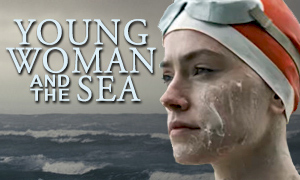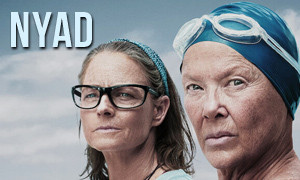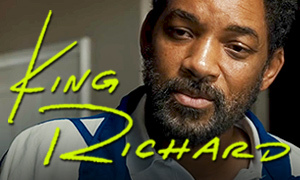Queen of Katwe: History vs. Hollywood
| REEL FACE: | REAL FACE: |
Madina Nalwanga
Birthplace: Uganda | Phiona Mutesi
Born: abt 1996 Birthplace: Katwe, Kampala, Uganda |
David Oyelowo
Born: April 1, 1976 Birthplace: Oxford, England, UK | Robert Katende
Birthplace: Kiboga, Uganda |
Lupita Nyong'o
Born: March 1, 1983 Birthplace: Mexico City, Distrito Federal, Mexico | Harriet Nakku
Born: abt 1969 Birthplace: Seeta, Uganda |
Why is there no birthdate listed for Phiona Mutesi?
Like most people in Katwe, Phiona does not know it. Birthdays are not recorded anywhere. Few people have calendars and most don't know the date or day of the week. Clocks are a luxury. -ESPN The Magazine
Did Phiona Mutesi's father die of AIDS?
Yes. "My father died of AIDS when I was 3-years-old," says Phiona. "My mother could no longer afford to pay my school fees." (Silent Images Documentary). In an NTV interview, Phiona's mother Harriet commented, "Life became really hard. I was a housewife at the time without a job. After failing to pay rent, I shifted all our property to my sister's home where they got stolen." Harriet then relocated the family to her mother's place in Katwe.
Did one of Phiona's sisters die?
Yes. The Queen of Katwe true story reveals that Phiona Mutesi's sister died just weeks after they buried her father. "After the funeral my family stayed in the village for a few weeks, and one morning when I woke up, my older sister, Juliet, told me she was feeling a headache. We got some herbs and gave them to her, and then she went to sleep. The following morning we found her dead in the bed. That's what I remember," says Phiona. -ESPN The Magazine
Where is Katwe?
Phiona grew up in the slums of Katwe, a crime-ridden area in the capital city of Kampala, Uganda. The East-African country is the second most populous landlocked country following Ethiopia.
Is it possible that Phiona's mother Harriet is HIV-positive?
Yes. Phiona's mother Harriet, portrayed by Lupita Nyong'o in the Queen of Katwe movie, worries that her constant illnesses are because she's HIV-positive. She's too scared to get tested. Phiona's father passed away from AIDS when she was 3. Phiona hasn't been tested either. -ESPN The Magazine
Did Phiona really drop out of school at a very young age?
Yes. In fact-checking Queen of Katwe, we learned that she dropped out of school at age 6 when her mother could no longer afford to send her. "It was very hard to not be in school," says Phiona. "I was in the slums alone. I did not have hope." -Silent Images Documentary
Did Phiona sell maize in the street to help her family survive?
Yes. Phiona's mother, Harriet Mutesi, woke up at 2 a.m. to trek 5 kilometers (3.1 miles) to buy vegetables, including eggplants and avocados, which Phiona sometimes helped her resell at a street market when she wasn't looking after her siblings (ESPN The Magazine). Eventually, all the kids helped. "The children and I would all go to the street to sell maize," Harriet told NTV Uganda.
Did Phiona Mutesi nearly die?
Yes. The Queen of Katwe true story confirms that Phiona nearly died when she was 8 years old. Her mother Harriet believes that she had malaria. After begging for money from her sister, Harriet took Phiona to the hospital and doctors removed fluid from Phiona's spine after she lost consciousness. Two days later she was awake and began to recover. -ESPN The Magazine
How did Phiona discover chess?
Like in the movie, Phiona was introduced to chess at age 9 after secretly following her brother Brian to a meeting of the Sports Outreach Institute, a Christian mission where she observed him playing chess. Missionary Robert Katende, portrayed by David Oyelowo in the movie, welcomed her and taught her how to play. Realizing the kids he was working with weren't all going to play soccer (partially because the parents couldn't afford medical bills for injuries), Katende taught them chess, which he had mastered when he was younger. The lessons took place inside of Agape Sanctuary, a loosely put together church with a listing roof and crumbling walls. At the chess board, everyone was equal. Class, income and education didn't matter. The program had grown to 25 kids when Phiona joined. "I started playing against girls and boys," says Phiona, "then I started beating the boys."
The movie goes on to draw parallels to how the game reflects Phiona's life. One example is Phiona (Madina Nalwanga) liking the act of "Queening" because a pawn survives and makes it all the way across the board, becoming a Queen. The real Phiona Mutesi drew such parallels to her own life as well. -Silent Images Documentary
Is life in the slums of Katwe as harsh as what's shown in the movie?
Yes, it's actually much harsher than what's seen in the film. The Disney Queen of Katwe movie understandably tones down the realities of life in the slums, details that can be found in Tim Crothers' nonfiction book of the same name, on which the movie is based. There is no sewage or sanitation, the stench is appalling. Garbage litters the slums and flies are everywhere. There is an absence of law. Drug use, prostitution, robbery and murder are prevalent, making Katwe one of the worst crime-ridden areas in the capital city of Kampala, Uganda. 50 percent of teen girls are mothers.
Like in the movie, Phiona had to wake up at 5 a.m. each morning to embark on a two-hour trek to fill a jug with water that was safe to drink. Most days consisted of searching for food and usually a meal of rice and tea. She and her family had moved to different locations in Katwe six times in four years, once because they were robbed of everything and another time because their hut was crumbling. -ESPN The Magazine
Did her chess coach, Robert Katende, really play as big of a roll in her life?
Yes. "I'm so happy to have Coach Robert as my coach," Phiona said in 2010 at age 15. "He teaches me about chess and God. He has prepared me well for Russia. Every day Coach Robert and I train to make me a better chess player." -Silent Images Documentary
Was Robert Katende really only planning to coach until he found more lucrative work as an engineer?
Yes. His educational background was in engineering, specializing in civil, IT, and computer engineering. Early on he hoped to find better paying work in one of those fields, but unlike the movie, by the time he met Phiona he had already realized his calling was to be a missionary/coach. A bastard child born in the village of Kiboga, just outside Kampala, Uganda, Robert had worked his way out of the slums and made it to the university. His skill at soccer helped him to receive an education and make a little money as a player after he graduated.
His coach told him about a job with the Sports Outreach Institute, a Christian mission. "I taught myself to be a sports missionary," says Robert, "because I use sports to mend and transform lives, mainly of children who are facing some tragedies in life. Having personally gone through such hard life, I realized that it was by the grace of God to be who I am, so I decided to just invest in the children who are facing the same tragedies I had faced" (NTV). He first worked as a missionary soccer coach before deciding to also teach chess. -ESPN The Magazine
Was Phiona's mother initially opposed to her playing chess?
Yes. "At first I didn't know what chess was all about," says Phiona's mother Harriet. "I punished [Phiona's brother] when he joined. I wanted them to go help me sell maize, instead they would at times go for the game. It didn't go down well with me then. ... They then told me about their coach and his good intentions, so I allowed especialy when he introduced himself to me" (NTV). Phiona's mother Harriet heard that Coach Robert Katende was part of an organization run by white people, and she had been told that if Phiona kept going there to play, they would eventually take her away. "But I could not afford to feed her," says Harriet. "What choice did I have?" (ESPN The Magazine)
Exactly how good is Phiona Mutesi at playing chess?
Coach Robert Katende realized Phiona was a prodigy and had a gift when she started to beat him. He then took her outside the slums and she defeated the privileged boarding-school kids and then the university players. In 2007, she won the Uganda women's junior championship when she was 11. She took the title the following two years until the Uganda Chess Federation ran out of money to stage the event the fourth year. Like in the movie, Phiona has the gift of seeing as many as eight moves ahead. The proof of this is evident by her success as a player. "When I play chess I'm not afraid," Phiona said. "I know that I can win. It doesn't matter if my opponent is a girl, or a boy, or a man, I'm sure I can win" (Silent Images Documentary).
Were actual locations from the true story used for the movie?
Yes. In researching the Queen of Katwe true story, we learned that some of the real-life locations were used for the filming, including Agape Church (Sanctuary), the ramshackle structure where Robert Katende taught Phiona how to play chess. "Being in Uganda, in the church in Katwe, in the slum that the real Phiona Mutesi emerged from, makes you feel the challenges they faced and the uniqueness of who they are," says actor David Oyelowo, who plays Katende in the movie. According to director Mira Nair, "The city of Kampala and the slum of Katwe are themselves characters in the movie. We used many of the real locations there." Other scenes were shot in South Africa, a country whose infrastructure is more condusive to filming and that Nair says has "the simple architecture and the red earth" that the production needed. -NYTimes.com
Was Phiona Mutesi able to go back to school in real life?
Yes. With the help of a grant from the Sports Outreach Institute, Phiona was eventually able to return to school, learning to read and write. After helping her mother with chores, she had to walk 3 kilometers (1.86 miles) to school. "It is a long walk but I must do it to go to school," Phiona said. "I know that my education is very important to my future. ... I love my friends and my teachers." -Silent Images Documentary
Did she help Uganda win Africa's International Children's Chess Tournament in 2009?
Yes. The tournament was held in Sudan and it was the first time that Phiona had been out of Katwe. She was victorious in all four of her matches, as were her two teammates, Ivan and Benjamin, earning their country the team championship. The trip itself was just as overwhelming as the victory. Flying above the clouds, she wondered if the plane was going to reach Heaven. The hotel marked the first time she ever had her own bed or a flushing toilet. Holding a menu was the first time she ever had a choice of what to eat at a meal. "I could never have imagined this world I was visiting," remarked Phiona. "I felt like a queen." -ESPN The Magazine
Does religion play an important part in Phiona Mutesi's life?
Yes, even more so than what is shown in the movie. Phiona believes that her talent as a chess player is a precious gift from God. She prays daily. Her coach, Robert Katende, taught her about both God and chess. -Silent Images Documentary
Did she play in the World Chess Olympiad in Russia?
Yes. In the fall of 2010, Phiona was selected to represent Africa at the World Chess Olympiad in Siberia, Russia as the second-seeded player for the Ugandan Team. She was 14 and her nine teammates were all in their 20s. She was to face women in the match, including her first opponent, Canadian national champion Dina Kagramanov, born in Baku, Azerbaijan, the same hometown as chess champion Gary Kasparov. Phiona lost the match, but Kagramanov commented later that she absorbs things like a sponge and posseses a gift that gives her the potential for greatness. The next day she lost a closer match against Elaine Lin Yu-Tong of Taiwan, which she felt she should have won. A third match against Khaled Mona, the women's grandmaster from Egypt, also proved fatal, as did a fourth against Angolan Sonia Rosalina. Coach Katende regretted her No. 2 seeding, but she was learning with each defeat and won her fifth match against an Ethiopian, Haregeweyn Abera, an African teenager like her. -ESPN The Magazine
Is Queen of Katwe director Mira Nair from Uganda too?
No, Mira Nair was born in India, but she has had a home in Phiona's birthplace of Kampala, Uganda for more than two decades, so she is very familiar with the area (Variety.com). Nair is married to a Ugandan academic and she has also founded a film school there called Maisha (NYTimes.com). She cast Kampala locals to play Phiona's three oldest siblings, strengthening the movie's connection to the Queen of Katwe true story (The Hollywood Reporter). Before becoming an actress, Oscar winner Lupita Nyong'o, who plays Phiona's mother Harriet, had worked for Mira Nair's production company in New York. Nyong'o then went on to hold an administrative position at Nair's film school in Kampala. "I learned I'd rather be a participant when I acted in one of the films the students made," said Nyong'o (NYTimes.com).
How has chess changed Phiona Mutesi's life?
"[Chess] has given me an opportunity to go back to school," Phiona told CNN's News Room in 2014. "Chess gave me hope, where by now I'm having a hope of becoming a doctor, and I'm having now a hope of becoming a grandmaster." She went on to earn the title of candidate master after competing in a world championship in Turkey. Phiona's mother Harriet has been able to move her family into a permanent home (pictured below). "Life has changed so much," says Harriet. "We never really had a home to call our own. We would move from place to place. We have a home and land to cultivate. Unlike before when life was really hard. My children are all in school now. I thank God for this life" (UTV).
Phiona Mutesi Interviews, Documentaries & Related Videos
Learn more about the Queen of Katwe true story by watching a Phiona Mutesi interview and documentary below. Also view a Robert Katende documentary directed by Queen of Katwe director Mira Nair.
Link-to-Learn More:
- "Game of Her Life" Phiona Mutesi ESPN The Magazine Story by Tim Crothers
- Official Queen of Katwe Chess Academy and Mentoring Center Website
- Official Website of the Sports Outreach Institute, which Employs Robert Katende
- Official Queen of Katwe Disney Movie Website







